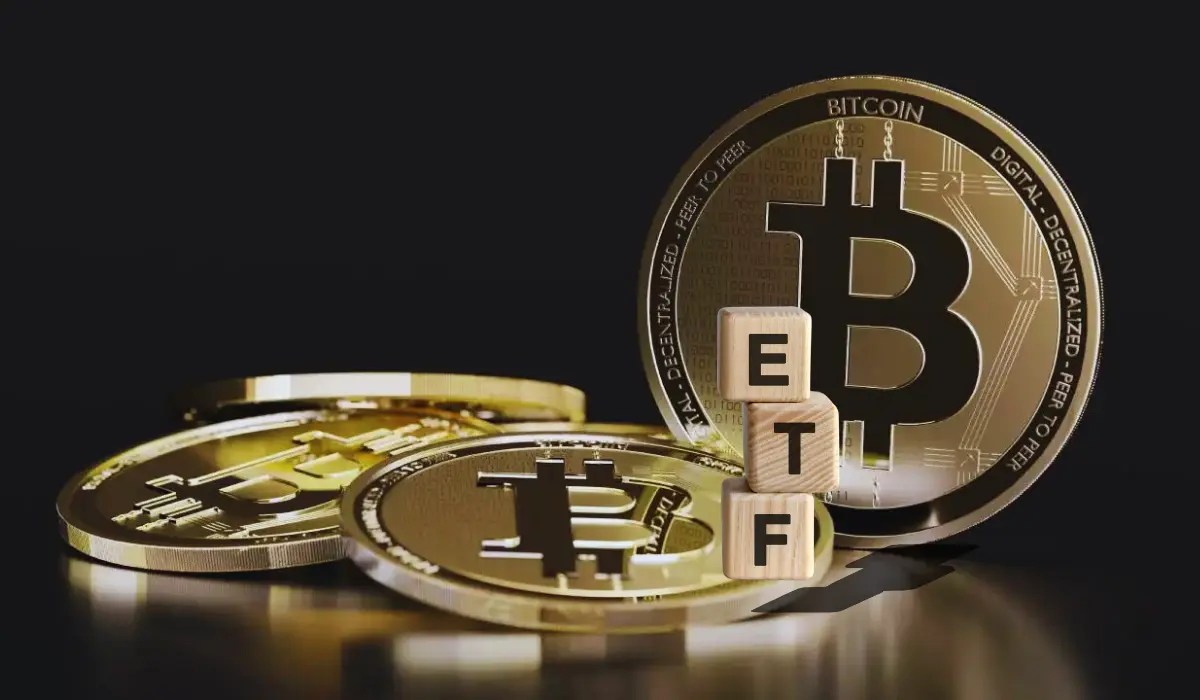According to its latest Form 13F filing with the US Securities and Exchange Commission (SEC), the State of Wisconsin Investment Board (SWIB) reported that it has liquidated its shares in BlackRock’s iShares Bitcoin Trust ETF (IBIT) during the first quarter of 2025.
Wisconsin State Pension Fund Sold $300 Million Worth of IBIT Shares During Q1 2025 Amid US Tariff War
As per its previous filing dated February 14, the organization overseeing Wisconsin’s retirement funds held approximately 6.06 million IBIT shares, worth around $355.6 million at current prices. These positions were liquidated against the backdrop of growing market uncertainty triggered by President Donald Trump’s sweeping tariffs on America’s trading partners.
In 2024, SWIB became the first state-controlled investment fund to provide its retirees with exposure to Bitcoin. In Q1 2024, the same quarter the investment products were launched, it purchased $164 million worth of Bitcoin ETF shares.

The latest SEC filing, dated May 15, confirmed that SWIB sold all its Bitcoin ETF holdings ahead of the March 31 reporting date for the end of the first quarter. Most notably, the cutoff date is just two days before “Liberation Day” on April 2 – the day the US government imposed comprehensive tariffs affecting imports from nearly all countries.
The mass sell-off came just three months after SWIB reportedly made additional purchases of IBIT shares in Q4 2024, and reallocated the entire 1 million shares held in the Grayscale Bitcoin Trust (GBTC) to BlackRock’s ETF. As of December 2024, Bitcoin ETFs represented around 0.2% of the pension fund’s $166 billion worth of assets under management (AUM).
Trump’s Tariff-Led Trade Policy Created Significant Volatility For Bitcoin’s Price, Impacting Institutional Investors
Trump’s aggressive trade policy, seeking to bring manufacturing back to the US and spur domestic growth, dramatically shifted the global economic landscape. The plan started with his administration announcing 25% tariffs on goods imported from Canada and Mexico and a 10% tariff on China. Two days later, the President paused tariffs on Mexico and Canada for 30 days, but left the levy on Chinese goods unchanged.
By February 11, Trump reinstated a 25% tariff on steel imports and raised the tariff on aluminum to 25%. Pressure on China ramped up on March 4, when Washington increased tariffs to 20%. This policy spiral led to significant market instability, with financial and economic experts warning that the tariffs could push core inflation in the US to 3.8% this year.
The volatility did not spare the crypto market, with Bitcoin dropping to its lowest valuation of the year at $75,000, while Ethereum declined to below $2,000.
The retaliatory actions between the US and China led to tariffs on Chinese imports surging to 145%, while China raised levies on US products to 125%, causing more chaos in the financial market. However, things began to deescalate in May when both countries decided to engage in discussions to agree on terms, while temporarily reducing tariffs.
Washington lowered its rate on Chinese goods to 30%, while Beijing reduced its tariffs on American imports to 10%. Trump also paused the reciprocal tariffs he had imposed on other countries for 90 days until comprehensive trade agreements were reached.
SWIB wasn’t the only Bitcoin ETF shareholder to have exited the market in the turmoil during the first three months of the year. However, the majority of large-scale investors decided to hold on to their positions as they expected Bitcoin’s price to recover.
Millennium Management reportedly reduced its shares in the iShares Bitcoin Trust ETF by 41% while exiting its position in the Invesco Galaxy Bitcoin ETF (BTCO). However, the New York-based investment firm increased its stake in ARK 21 Shares Bitcoin ETF (ARKB) and the Grayscale Bitcoin Mini Trust (BTCP). Jersey-based asset manager Brevan Howard also trimmed its shares in IBIT by 15.6%.
Meanwhile, Brown University made its foray into cryptocurrency investment by acquiring a stake worth $4.9 million in IBIT at the end of March. As of May, the Ivy League university continues to hold its position in the Bitcoin ETF with an AUM of $64.77 billion.
Abu Dhabi’s Mubadala Increased Bitcoin Exposure In Q1 2025, Indicating Institutional Interest In The Flagship Crypto
While retail traders were exiting the market, wealth funds and other institutions were accumulating Bitcoin at a cheaper price throughout April. During a recent appearance on CNBC, John D’Agostino, head of strategy at Coinbase Institutional, likened Bitcoin to gold and said that many institutional investors bought the flagship crypto asset as a hedge against currency inflation and macroeconomic uncertainty.
Mubadala, the sovereign wealth fund of Abu Dhabi, reported in its SEC 13F filing that it purchased 491,000 shares of IBIT in Q1 2025. As of March, the Emirati state fund holds 8.72 million shares of BlackRock’s Bitcoin ETF, worth over $500 million at current rates.
The contrasting strategies adopted by SWIB and Mubadala reflect the approach of state-backed funds to Bitcoin amid a volatile market during the first three months of the year. While Abu Dhabi’s state-owned investment vehicle opted to expand its exposure despite the asset’s value declining, SWIB decided to liquidate its holdings, reflecting the state pension fund’s reduced risk tolerance. Both entities provided an insight into institutional investors’ response to Bitcoin’s volatility through ETFs.
At the time of writing, Bitcoin (BTC) is trading at $103,988 – up 1.62% in the last 24 hours.
